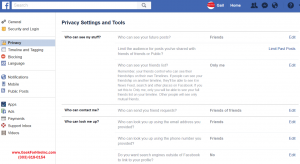I learned a new acronym recently in an article about girls and technology. “STEM”, which stands for Science, Technology, Engineering and Math. Here are some disturbing statistics I read in another article from Observer.com:
- Women own only 5 percent of startups.
- They earn only 28 percent of computer science degrees.
- Only 7 percent of partners at top 100 venture capital firms are women.
- After peaking in 1991 at 36 percent, the rate of women in computing roles has been in steady decline. Now, they hold only 25 percent of computing jobs.
- Women hold only 11 percent of executive positions at Silicon Valley companies.
- In the high tech industry, the quit rate is more than twice as high for women (41 percent) than it is for men (17 percent).
- Last year, venture capitalists invested just $1.46 billion in women-led companies. Male-led companies earned $58.2 billion in investments.
- While 82 percent of men in startups believed their companies spent the “right amount of time” addressing diversity, nearly half of women—40 percent—disagreed, saying “not enough time was devoted.”
- For women in the tech industry under age 25, earnings on average are 29 percent less than their male counterparts.
- Women receive lower salary offers than men for the same job at the same company 63 percent of the time.
Part of the problem is that girls are deterred from an interest in the sciences at a young age. If a girl in your family is showing an interest in the sciences, here are some resources to assist you in fanning those flames for your girls and technology:
- Girls and Technology – a subset of WIT – Women in Technology
- Ignite – Inspiring Girls Now in Technology Evolution
- Girls Who Code
- Girl Develop It
- Ladies Learning Code
- Girl Start
Go get ’em girls!
Chris Eddy of Geek For Hire, Inc. has been providing computer service to families and small businesses with Mac’s and PC’s for the past fifteen years. His company is highly rated by both the BBB (Better Business Bureau) and by Angie’s List. You can find more on our website, or give us a call 303-618-0154. Geek For Hire, Inc. provides onsite service (Tier 3) to the Denver / Boulder / Front Range area as well as remote service throughout North America.
We’ve been using Amazon Prime for the past few years. We like the free 2-3 day shipping and the online streaming. I haven’t tried the Kindle lending library yet. I’ll try that next! Prime is normally $99/year, but you can try it for 30 day for free by clicking on this link: Try Amazon Prime 30-Day Free Trial (Yes, we’ll get a small commission if you check it out.)



